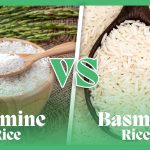When it comes to the humble potato and its sweeter cousin, the sweet potato, many people wonder which is the healthier choice. Both root vegetables are staples in diets around the world, but their nutritional profiles differ significantly. This article will dive deep into the introduction of both root vegetables, and the nutritional comparison between them, exploring their vitamins, minerals, and overall health benefits.
Potatoes:
The potato, a starchy root vegetable native to the Americas, is a dietary staple in many parts of the world. Originating from the plant Solanumtuberosum, a member of the nightshade family Solanaceae, potatoes have a rich history and diverse varieties. Domesticated around 7,000–10,000 years ago from a species in the S. brevicaule complex, potatoes were introduced to Europe by the Spanish in the latter half of the 16th century.
Potatoes are not just a staple food but also a significant part of many cultures’ cuisines. They are often boiled, roasted, or mashed. They also feature prominently in dishes like fish and chips in the UK, gnocchi in Italy, and cepelinai in Lithuania.
Sweet Potatoes:
The sweet potato (Ipomoea batatas), like its tuber mate, is a versatile and nutrient-rich root vegetable belonging to the Convolvulaceae family, which also includes the morning glory. Native to the tropical regions of South America, particularly present-day Ecuador, sweet potatoes have become a staple food crop in many tropical areas.
Sweet potatoes are renowned for their large, starchy, and sweet-tasting tuberous roots. They come in various cultivars with flesh and skin colors ranging from yellow, orange, red, brown, purple, and beige. Generally, sweet potato varieties with white or pale yellow flesh are less sweet and moist compared to their red, pink, or orange counterparts.
Much like the potatoes, culinary uses of sweet potatoes are also extensive: they can be baked, boiled, mashed, fried, or even made into flour for bread. In the Philippines, sweet potato fries are a popular snack, and in Indonesia, they are fried with batter and served with spicy condiments. In the mountainous regions of West Papua, sweet potatoes are a staple food cooked using the traditional bakarbatu method.
Sweet potatoes and potatoes, though sharing some similarities, offer distinct flavors, textures, and nutritional profiles. While both are deeply rooted in various culinary traditions worldwide, they each bring unique qualities to the table. Understanding the differences between these two beloved tubers is essential for making informed dietary choices. This comparison delves into the nutritional aspects of both, helping you decide which tuber best aligns with your health goals and culinary preferences.
Nutrient Composition Potatoes:
A boiled potato, 100 grams, with skin but without salt has the following nutritional composition:
| Macronutrients | |
|---|---|
| Calories | 87 |
| Water | 70% |
| Carbohydrates | 20.1 grams |
| Protein | 1.9 grams |
| Fiber | 1.8 grams |
| Sugar | 0.9 grams |
| Fat | 0.1 grams |
| Minerals | |
| Calcium | 0.31 mg |
| Iron | 0.31 mg |
| Magnesium | 22 mg |
| Phosphorus | 44 mg |
| Potassium | 379 mg |
| Sodium | 4 mg |
| Zinc | 0.3 mg |
| Vitamins | |
| Vitamin C | 13 mg |
| Vitamin B6 | 0.29 mg |
| Folate | 10 microgram |
| Vitamin E | 0.01 mg |
Calories:
A 100-gram serving of boiled potato without salt is a low-calorie, nutrient-dense food, providing just 87 calories. Potatoes are primarily composed of water, making them hydrating and helping to maintain fluid balance in the body, which also contributes to their low-calorie density.
Carbohydrates:
Carbohydrates are the primary macronutrient in potatoes, supplying energy. The complex carbohydrates in potatoes are digested more slowly than simple sugars, providing a steady energy release. Potatoes contain a small amount of natural sugars, providing a slight sweetness without significantly impacting blood sugar levels when consumed in moderate portions.
Proteins:
While not a high-protein food, potatoes do offer a small amount of protein, which is important for muscle maintenance and repair, as well as various bodily functions.
Dietary Fibers:
The fiber content in potatoes aids in digestion and helps maintain a healthy digestive tract. It can also contribute to a feeling of fullness, which may aid in weight management.
Fats:
With virtually no fat, boiled potatoes are a heart-healthy food option that can be included in low-fat diets without adding significant fat content.
Vitamins and Minerals:
Potatoes are a significant source of essential vitamins and minerals that contribute to overall health. They provide a good dose of potassium, magnesium, iron, calcium, and zinc while among vitamins, potatoes are rich in Vitamin C, Vitamin B6, folate, and Vitamin E. The humble potato, therefore, deserves recognition as a nutritious and versatile dietary staple.
Sweet Potatoes:
A 100-gram serving of sweet potatoes with skin provides the following nutrition.
| Macronutrients | |
| Calories | 86 |
| Carbohydrates | 20 grams |
| Protein | 1.6 grams |
| Fiber | 3 grams |
| Sugar | 4.2 grams |
| Fat | 0.1 grams |
| Minerals | |
| Copper | 0.15 mg |
| Calcium | 30 mg |
| Iron | 0.61 mg |
| Magnesium | 25 mg |
| Phosphorus | 47 mg |
| Sodium | 55 mg |
| Zinc | 0.3 mg |
| Manganese | 0.25 mg |
| Potassium | 337 mg |
| Vitamins | |
| Vitamin C | 2.4 mg |
| Pro-Vitamin A | 14,187 IU |
| Vitamin B6 | 0.2 mg |
| Vitamin B5 | 1.1 mg |
| Vitamin E | 0.26 mg |
| Niacin | 0.557 mg |
Calories:
A 100-gram serving of sweet potato with skin is a nutrient-packed, low-calorie food, providing just 86 calories. This serving size highlights the sweet potato’s ability to offer substantial nutritional benefits with minimal calorie intake, making it an excellent choice for those looking to maintain a healthy diet.
Carbohydrates:
Sweet potatoes are primarily composed of carbohydrates that are a mix of complex starches that act as fibers accompanied with natural sugars, providing a steady release of energy. Sweet potatoes give them their characteristic sweetness without causing significant spikes in blood sugar levels.
Proteins:
Though not a high-protein food, sweet potatoes still contribute 1.6 grams of protein per 100 grams, supporting muscle maintenance and repair.
Dietary Fibers:
The fiber content in sweet potatoes is notably higher than that in regular potatoes, with 3 grams per serving. This fiber is crucial for promoting digestive health, helping to regulate bowel movements, and providing a feeling of fullness that can assist with weight management.
Fats:
Sweet potatoes are virtually fat-free, containing just 0.1 grams of fat per serving. This makes them an ideal food for heart-healthy diets, as they do not contribute to cholesterol or unhealthy fat intake that is only when they are consumed boiled. Fried potatoes such as French fries or chips have higher fat content due to their way of preparation.
Vitamins and Minerals:
Sweet potatoes are a nutritional powerhouse, offering a remarkable range of vitamins and minerals that contribute to overall health and wellness. Rich in essential minerals such as copper, calcium, iron, magnesium, phosphorus, sodium, zinc, manganese, and potassium, sweet potatoes support vital bodily functions including bone health, red blood cell formation, muscle contraction, and nerve function.
In addition to their mineral content, sweet potatoes are packed with essential vitamins. They are especially high in beta-carotene, which converts to vitamins A, C, E, B3, B6, and B5.
Role in Human Nutrition:
Different types of potatoes, especially those in various colors, offer more nutrients with health benefits. Generally, the darker the potato, the more antioxidants it contains.
Potatoes:
Overall health:
The high potassium content helps enhance the normal functioning of our heart, muscles, and nervous system, essentially useful in managing blood pressure.
Digestive Health:
Rich in fiber, potatoes aid in digestion and promote gut health.
Energy:
Potatoes specifically regular potatoes are an excellent source of energy due to their high carbohydrate content and higher glycemic index.
Protection from Scurvy:
Potatoes are a vital food source consumed in earlier times to fight off scurvy disease with its vitamin C component.
Weight Management:
Foods that are very filling can support weight management by prolonging the feeling of fullness after meals and reducing food and calorie intake.
Sweet Potatoes:
Rich in Antioxidants:
Sweet potatoes, particularly the orange and purple varieties, are abundant in antioxidants that protect the body from free radicals. These unstable molecules can damage DNA and trigger inflammation linked to chronic illnesses like cancer, heart disease, and aging. Therefore, consuming antioxidant-rich foods like sweet potatoes is beneficial for your health.
Gut Health:
The fiber and antioxidants in sweet potatoes support gut health. They contain both soluble and insoluble fiber, which stay in the digestive tract and offer various benefits. Soluble fiber absorbs water and softens stool, while insoluble fiber adds bulk. Fiber-rich diets are linked to a lower risk of colon cancer and regular bowel movements. Antioxidants in sweet potatoes also promote the growth of healthy gut bacteria, enhancing gut health and reducing the risk of IBS and infectious diarrhea.
Cancer-Fighting Properties:
Sweet potatoes contain various antioxidants that may help protect against certain cancers. Anthocyanins, found in purple sweet potatoes, have been shown to slow the growth of cancer cells in test-tube studies. Animal studies suggest that these antioxidants may reduce early-stage colon cancer. Extracts from sweet potato peels have also demonstrated anti-cancer properties in lab and animal studies, though human studies are still needed.
Healthy Vision:
Sweet potatoes are incredibly rich in beta-carotene, which is converted to vitamin A in the body. This vitamin is crucial for forming light-detecting receptors in the eyes. Consuming sweet potatoes can help prevent vitamin A deficiency, which can lead to blindness. Purple sweet potatoes also contain anthocyanins that protect eye cells from damage, supporting overall eye health.
May Enhance Brain Function:
The anthocyanins in purple sweet potatoes may improve brain function by reducing inflammation and preventing free radical damage. Animal studies have shown that these compounds can enhance memory and reduce markers of inflammation. While human studies are lacking, diets rich in fruits, vegetables, and antioxidants are associated with a lower risk of mental decline and dementia.
Beneficial For Your Immune System:
Orange-fleshed sweet potatoes are one of the richest sources of beta-carotene, which is converted to vitamin A in the body. Vitamin A is essential for a healthy immune system, and low levels are linked to reduced immunity. It also helps maintain healthy mucous membranes, particularly in the gut, which is crucial for defending against pathogens. Regularly consuming sweet potatoes can help prevent vitamin A deficiency, thereby supporting overall immune function.
Anti-inflammatory:
The antioxidants in sweet potatoes help reduce inflammation.
Potential Side Effects:
While both potatoes and sweet potatoes offer numerous health benefits, they also come with potential risks that should be considered.
Potatoes:
High Glycemic Index:
Regular potatoes, especially when baked or mashed, have a high glycemic index (GI). This means they can cause a rapid spike in blood sugar levels, which can be problematic for individuals with diabetes or insulin resistance.
Acrylamide Formation:
When potatoes are cooked at high temperatures, such as frying or baking, they can form acrylamide, a compound linked to cancer in animal studies. Although the risk to humans is still being studied, it’s a concern worth noting.
Solanine Toxicity:
Potatoes that have turned green or sprouted contain solanine, a toxin that can cause nausea, headaches, and neurological problems if consumed in large quantities.
Weight Gain:
Due to their high carbohydrate content, consuming potatoes in large amounts, especially in forms like fries or chips, can contribute to weight gain and associated health issues like obesity and cardiovascular disease.
Sweet Potatoes:
Oxalate Content:
Sweet potatoes contain oxalates, which can contribute to the formation of kidney stones in susceptible individuals. Those with a history of kidney stones should monitor their intake.
Beta-Carotene Overconsumption:
Excessive consumption of sweet potatoes can lead to an overabundance of beta-carotene, which may result in carotenemia, a condition where the skin turns yellow-orange. While not harmful, it can be alarming and cosmetically undesirable.
Both potatoes and sweet potatoes have many advantages but also potential downsides mainly due to the way they are cooked or stored. Moderation and proper preparation methods can help mitigate these risks, allowing you to enjoy their nutritional benefits without adverse effects.
Conclusion: Which is Healthier?
Both potatoes and sweet potatoes have their own unique health benefits. The choice between them depends on individual dietary needs and health goals:
For Higher Fiber and Lower Calories:
Sweet potatoes are a better choice due to their higher fiber content and slightly lower calorie count.
For Potassium and Protein:
White regular potatoes have an edge with higher potassium and protein content.
For Lower Glycemic Index:
Sweet potatoes are preferable, especially for individuals managing blood sugar levels as sweet potatoes have a lower glycemic index meaning the sugar level of blood does not spike up rapidly after its intake.
For Antioxidants:
Sweet potatoes, particularly those with orange or purple flesh, offer more potent antioxidants like beta-carotene and anthocyanins.
Incorporating both into a balanced diet can help you enjoy the unique benefits each type of potato offers. Whether you’re making a hearty stew with white potatoes or baking a sweet potato for a nutrient-packed side, both options can be part of a healthy, varied diet.
References:
- doi: 10.1270/jsbbs.16125
- doi: 10.3390/nu10111764
- doi: 10.3892/or.2018.6421
- doi: 10.3402/fnr.v59.27830
- doi: 10.3390/pharmaceutics14050980
- doi: 10.3892/mmr.2018.8440
- doi: 10.3390/jcm7090258
- doi: 10.3389/fnagi.2017.00018
- doi: 10.3390/molecules26071820
- doi: 10.2903/j.efsa.2020.6222
- doi: 10.1080/10408398.2019.1588222
- doi: 10.3109/10408440903524254
- doi: 10.33549/physiolres.933381
- doi: 10.1377/hlthaff.2015.0434







